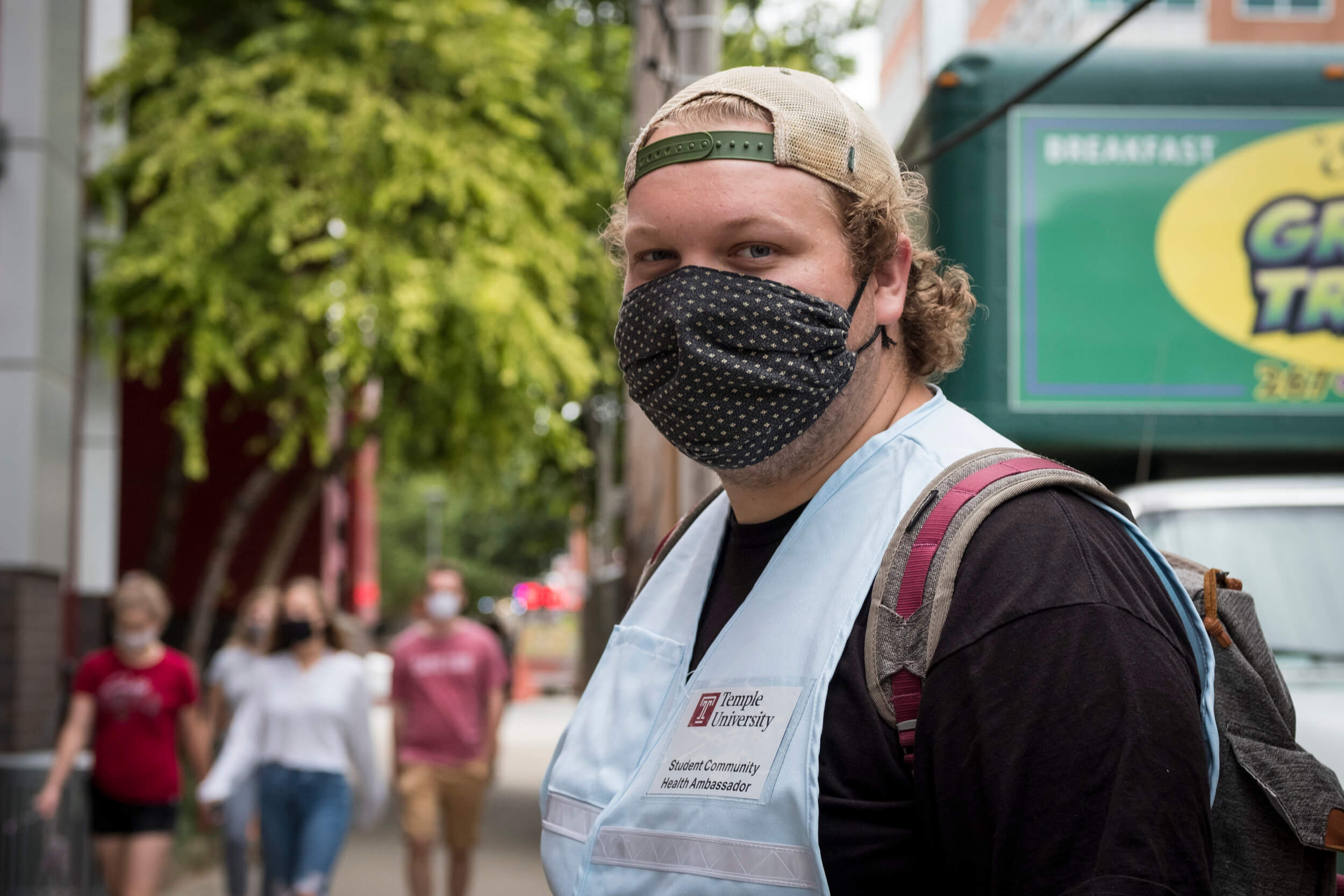Among the changes to Temple’s campus this semester was the introduction of the Student Community Health Ambassador program: students who help encourage the Temple community to follow the university’s four pillars of public health.
Many of them are student workers whose other campus jobs have been furloughed. Media studies and production major Nicholas Palomba, Class of 2022, had been working at Charles Library before the coronavirus pandemic led to him being temporarily laid off.
His boss wrote to him about the ambassador program. “It sounded like a good opportunity,” Palomba said, “especially in this COVID kind of world we’re living in, where jobs are hard to come by and changing rapidly.”

Saleh Salimshahshahani joined the ambassador program to help the people around him. (Photo by Joseph V. Labolito)
The ambassadors are trained to offer guidance and suggestions; they don’t confront people or enforce anything. “We have no right to force anyone,” said biology major Saleh Salimshahshahani, Class of 2022. “We just have to let people know what is the best thing to do in these times.”
A typical shift lasts two hours and students can sign up to work a maximum of 20 hours a week. Ambassadors clock in at the Howard Gittis Student Center, put light blue vests on (to make them easier to spot) and head out to patrol one of six zones they’re assigned to on campus.
“You can sign up for your own zone,” Palomba said. “Wherever you feel most comfortable.” Salimshahshahani, for example, prefers the area around the Biology-Life Sciences Building, which is familiar ground for him.
If they spot people who aren’t wearing masks, the ambassadors approach them, explain why masks are important and let them know where they can find some on campus. And if people are wearing masks, they receive tickets they can exchange for prizes at the Student Center.

Katelyn Rogers wants to help others feel safe and comfortable. (Photo by Ryan S. Brandenberg)
“[The response has] been pretty positive thus far,” said Katelyn Rogers, Class of 2022, a criminal justice and political science major. “People see us wearing our masks and I guess, seeing students, they feel more comfortable.”
On his first day on the job, Salimshahshahani saw someone who wasn’t wearing a mask and walked up to him. Initially the man was reluctant to listen, Salimshahshahani said, but eventually he was able to convince him that he was trying to help and to get him to wear a face covering.
“That’s what we learn in orientation, is how to interact with people and open up a conversation,” Palomba said. The ambassador’s role is to explain that “we have to follow these guidelines so that not just our students, but the people in the surrounding area are safe.”
Jyoma Lama Tamang, Class of 2023, who is studying political science and Spanish, feels having ambassadors around encourages everyone to follow the guidelines.
To her, doing the job is the same as doing her part as a friend or community member to keep everyone safe. “It is all of our duties to be responsible for ourselves and everyone around us,” she said. “I feel like it’s like a normal thing.”
Above all, the ambassadors are there to help. “We’re not out to like harm anyone,” Rogers said. “We’re just here to be there for people if they feel uncomfortable or aren’t used to wearing a mask.”
“We understand, you know, we’re here to help you. And if you have any questions about anything, we’re here to answer them.”
—Edirin Oputu

